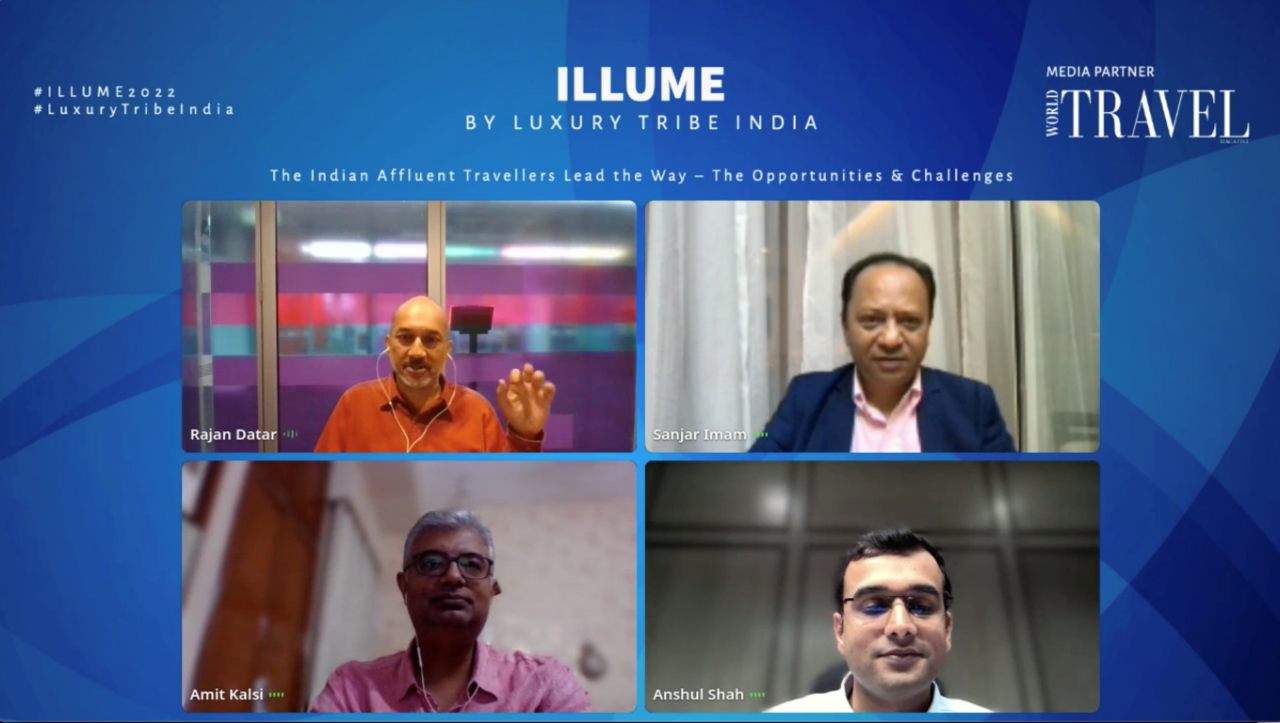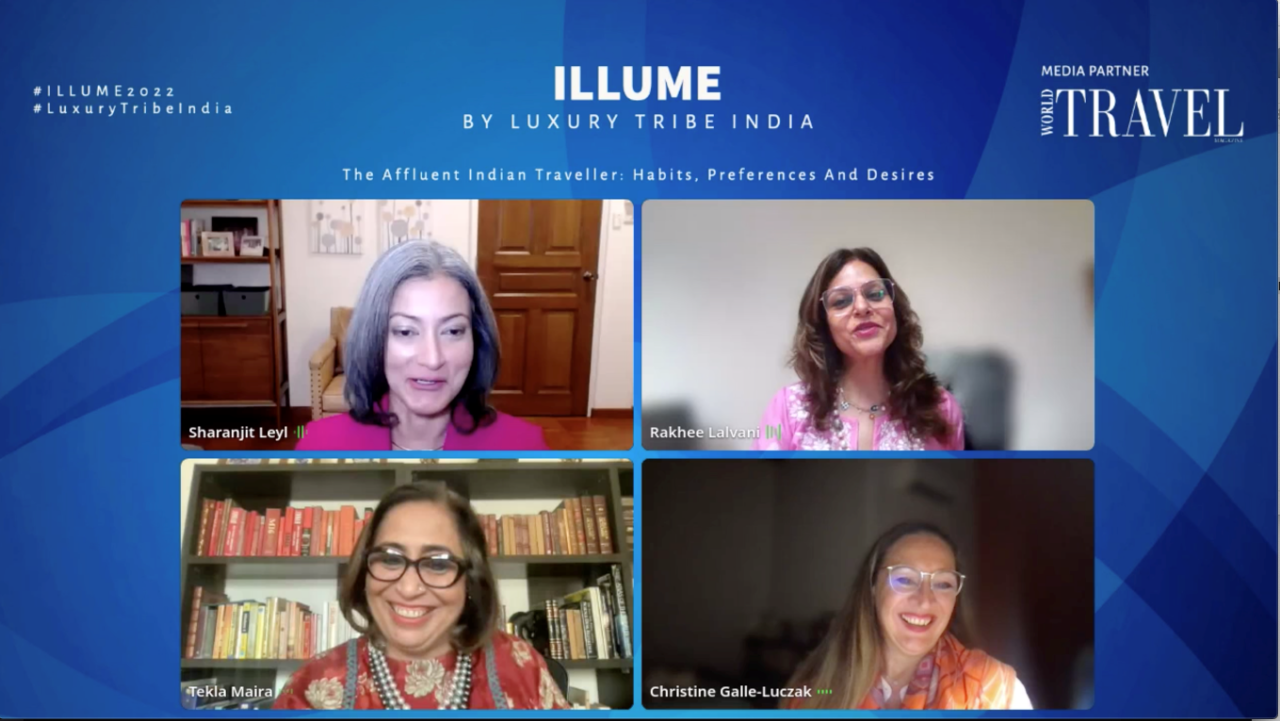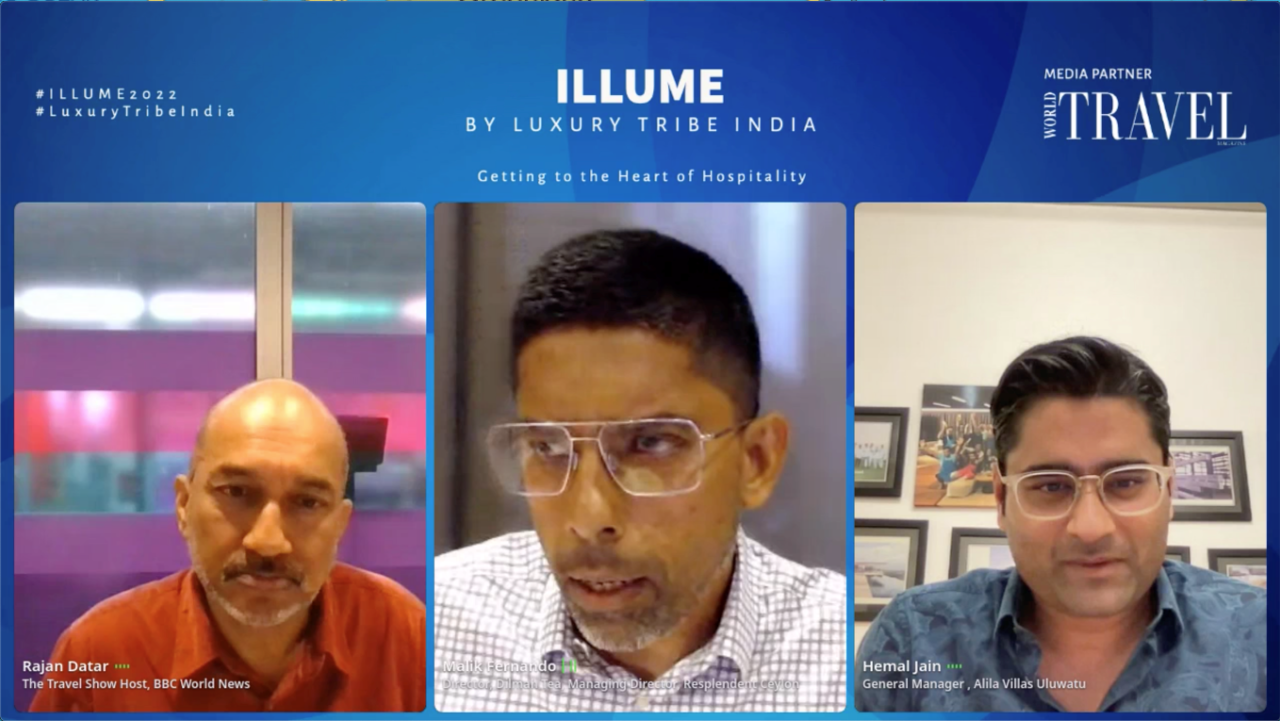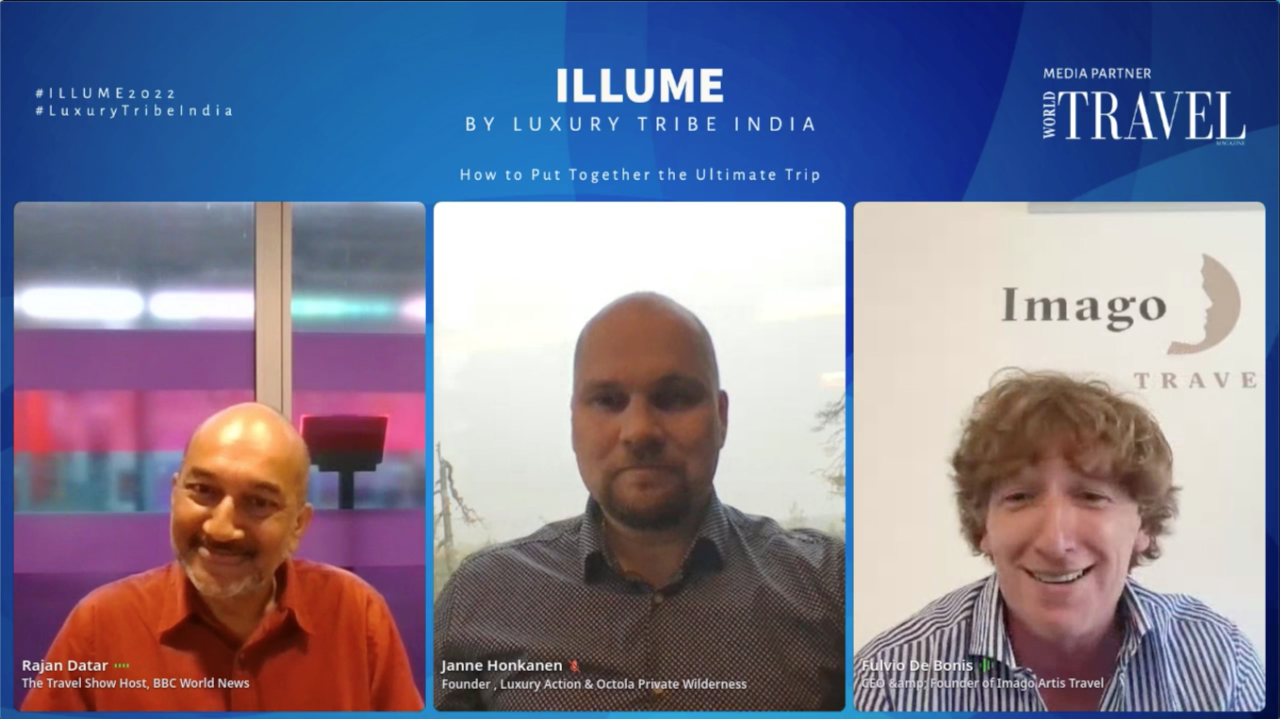Datar The Travel Show Host, BBC World News
Rajan Datar The Travel Show Host, BBC World News
Two leading Destination Experts from Finland and Italy, both of whom work with Indian and international celebrities, rounded out the day’s talks. Both spoke about the connections that affluent Indian travellers make, whether with local people and the wilderness of Lapland, or something simple as the experience of coffee in a cafe in Rome, which can be turned into an extravagant episode with the right story. “Narrative is the foundation of what we do. Not where you take [clients] and what they see, but how you present it,” explained Fullviio de Boniis, Founder and CEO of Imago Artis Travel. “The story behind is more interesting.” Travel planning requires creativity, patience, knowing yourself, and working with the right people. And of course offering something unique.
“We want to take out guests to have most authentic experiences you can have,” explained Jaane Honkanen, Founder of Luxury Action, the leading DMC for Lapland and the Arctic. “Lapland is more than Santa Claus, there are real experiences here. You can eat with local people, feed the reindeer with a local herder, see what his regular day at work is. Our supermarket is our back yard. It is quite an experience, in the middle of nowhere, and that is luxury.” De Bonis shared the simple side of luxury that can elevate a guest’s trip. “We have access to a private palace in Rome and we make clients leave their phone on the table before they go in. We don’t want them to record it or share pictures. It sounds strange, but sometimes it’s better not to change the atmosphere, then it’s really exclusive.”
TOP TRENDS IDENTIFIED AMONG AFFLUENT INDIAN
Indian Affluent Travellers are Equally Internatiional
The discerning Indian traveller is no different from similar travellers in other countries, so don’t assume they aren’t skiers or divers or won’t climb mountains. If you think like that, you will lose lucrative clientele.
Back in Business
Affluent Indians are back to travelling, and demand is high. The past six months matched what was done pre-pandemic; the next six months will be only more.
Go off the Beaten Path ffor an Authentic Travel Experience
There is a paradigm shift away from cities, with a rise in travelling to nature, and destinations with fewer tourists. Puglia instead of Umbria, for instance, or Africa with independent villas or luxury tents. The Maldives was a huge hit because guests could stay in a villa and not deal with the people around them.
Access Drives the Destination
Access will drive destinations. Australia made a strong move by introducing a Sydney- Bangalore direct flight this month, and direct flights from Ahmedabad to Vietnam have put that country on the radar of affluent Indian travellers in these regions of India.
Changing Travel Landscape
Gen Z & affluent millennial travellers, the greatest growth in the market, are more eco- conscious than their parents, and they are very clear on what they want. They care about the type of experience they want and want sustainability to be taught to their kids when they take the trip.
Spend has Gone Up Multi-fold
Affluent Indian travellers and not afraid to travel now, and are not afraid of spending. Pre-pandemic, they might have spent $500 a night on a hotel, but now they will happily spend $2000 a night, as long as they feel they are getting value.
India is the New Hotspot for International Tourism Boards
With China’s outbound travel ground to a halt, every tourism board is counting on India as the biggest one chunk market, putting India in a very sweet spot.
Travel More and for a Longer Period
Taking five or six breaks is the new normal, and one break is typically dedicated to wellness, either solo or through mindful journeys. In addition, travellers are extending the length of stay on longer haul trips, often combining business with pleasure.
Home Away from Home
Villa rentals and home stays are booming, letting travellers have their own bio-bubble.
Domestic Tourism Rising
Affluent Indian travellers have discovered the domestic offerings, with visitors from Tier 2, 3 and 4 cities now exploring the country. Bike trips around Ladakh, for instance, are popular now, and yet, were unheard of a decade ago among affluent Indians. Domestic tourism is here to stay.






